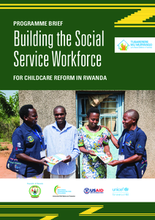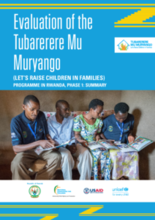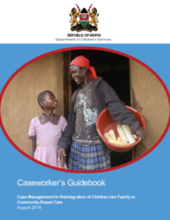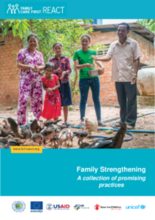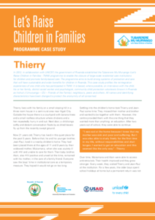Displaying 401 - 410 of 962
This theoretical paper focuses on early-stage planning in young adults in transition from out-of-home care in the UK.
This theoretical paper focuses on early-stage planning in young adults in transition from out-of-home care in the UK.
The goal of this study was to examine the contribution of natural mentoring to the improvement of life skills among youth in care in core areas of education, employment, and avoidance of risk behaviours while controlling for personal characteristics and placement history.
This study used a qualitative research design to uncover female care-leavers’ experience of aftercare in Ethiopia in 2017.
In collaboration with UNICEF, the government of Rwanda has established the Tubarerere Mu Muryango (TMM - Let’s Raise Children in Families) programme to ensure that all children living in institutional care in Rwanda are reunited with their families or placed in suitable forms of family-based alternative care. This report presents a summary of the findings of an evaluation of Phase 1 of this programme.
This qualitative research asked case managers in the Western Australia's child protection system what contributed to timely reunification of children with their families, a recent policy goal.
This guide provides an overview of the principles and practices of case management for reunification and placement of children outside of parental care (e.g., children from Charitable Children’s Institutions (CCIs) and Statutory Children’s Institutions (SCIs) , and street-connected children) into family- and community-based care in Kenya.
The purpose of the review, developed by International Child Development Initiatives, was to present an overview of (as much as possible) evidence-based promising practices in Family Strengthening interventions in Cambodia, implemented by FCF|REACT partners.
This case study profiles the reintegration experiences of one child who has participated in the Tubarerere Mu Muryango (Let’s Raise Children in Families - TMM) programme in Rwanda.

